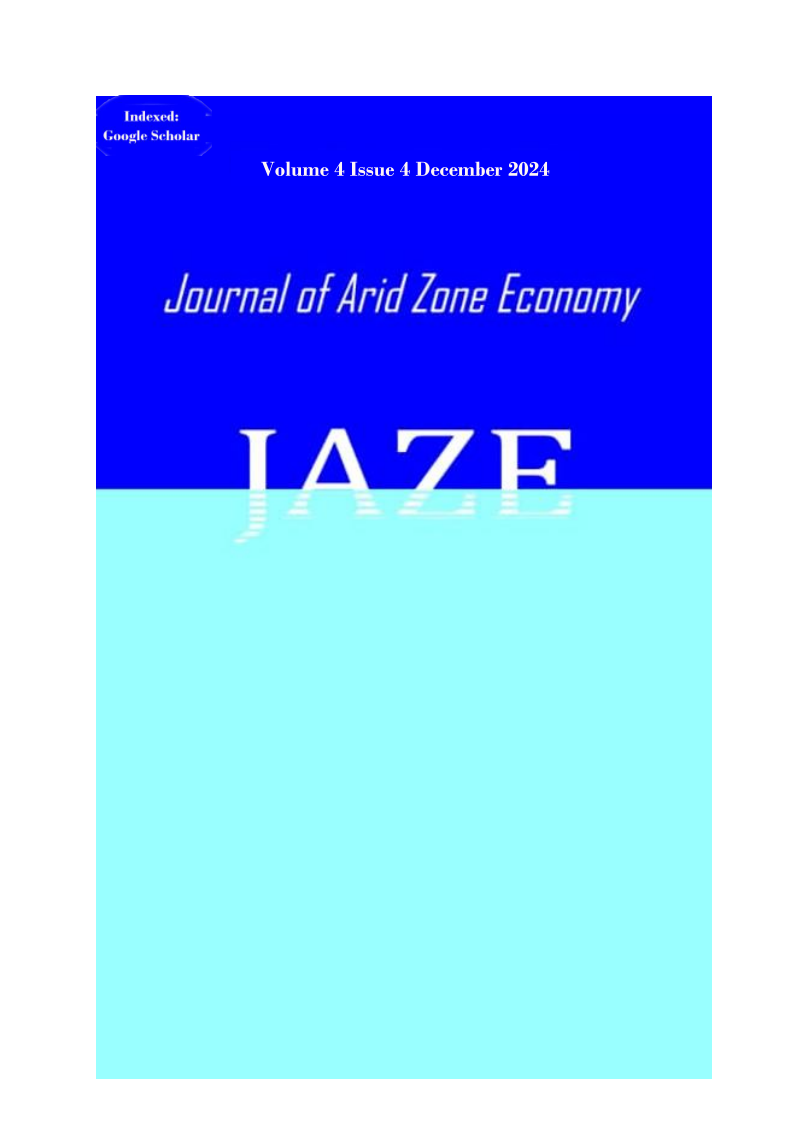Nexus Between Inflation and Unemployment in Nigeria
Keywords:
Inflation, Unemployment, Human Capital Development, Nigeria, ARDLAbstract
This study aims to clarify the connection between inflation and
unemployment in Nigeria, recognizing these as central macroeconomic
challenges. Effective management of both inflation and unemployment is
essential for achieving macroeconomic stability. Utilizing the
Autoregressive Distributed Lag (ARDL) model with annual time-series
data from 1986 to 2022, sourced from the World Bank and CBN statistical
bulletins, the study examines two models. The first model considers
unemployment as the dependent variable, with explanatory variables
including the human development index (HDI), government expenditure
(GEXP), and inflation rate (INF). The second model focuses on inflation
as the dependent variable, with money supply (MS), interest rate (INT),
and unemployment as explanatory variables. The ARDL Bounds test
indicates no long-term relationship among the variables. Short-run
estimates reveal minor negative effects between unemployment and
inflation. While money supply positively influences inflation, interest
rates have a negative impact. Additionally, HDI and government
spending positively affect unemployment. Based on these findings, the
study suggests implementing separate policies tailored to each issue
rather than attempting a unified approach, as this may yield more
sustainable results in addressing inflation and unemployment in Nigeria.

Downloads
Published
Issue
Section
License
Copyright (c) 2024 Journal of Arid Zone Economy

This work is licensed under a Creative Commons Attribution 4.0 International License.

